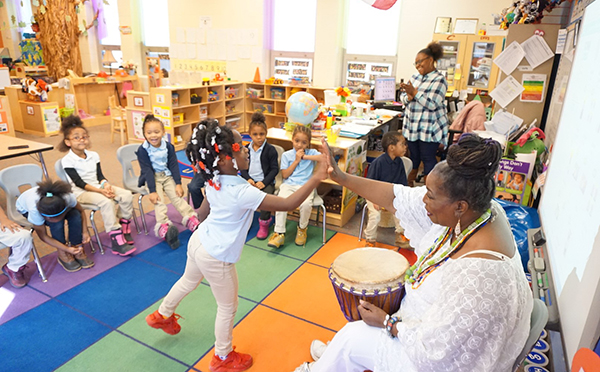- Home
- The MetroHealth Foundation
- Why Give?
- Reeve Foundation Visit
Caring for the Whole Person: A New Chapter in Spinal Cord Injury Rehabilitation

On June 12, a powerful moment unfolded at the MetroHealth Rehabilitation Institute as the Christopher & Dana Reeve Foundation visited the pioneering Adaptive Intimacy Lab, an initiative redefining how intimacy, autonomy and dignity are restored for individuals living with spinal cord injuries.
The visit holds special significance. Decades ago, actor and advocate Christopher Reeve received care at MetroHealth following his spinal cord injury. Now, the foundation that bears his and his wife Dana’s names returned to witness the impact of a nearly $25,000 Quality of Life grant, awarded to The MetroHealth Foundation in December 2024. The grant is already transforming patient care.

The Adaptive Intimacy Lab was envisioned by Gillian Gulan, MS, OTR/L, an occupational therapist with over a decade of experience in MetroHealth’s inpatient neurorehabilitation unit. Gulan recognized a critical gap in how sexual health is addressed in rehabilitation and sought to create a space where patients could engage in open, supportive conversations about intimacy.
“While these conversations can be uncomfortable, they are necessary,” Gulan said. “Being able to have candid conversations helps patients and their partners navigate changes, manage expectations and maintain intimacy.”
To bring this vision to life, the lab features several innovative components, including:
- A simulated apartment and bedroom space
- Assistive technologies that support autonomy in physical and sexual intimacy
- Guidance from two community consultants living with paralysis
MetroHealth is one of only 18 federally designated Spinal Cord Injury Model Systems in the U.S., recognized for its comprehensive, coordinated care and research. The Adaptive Intimacy Lab reflects the Institute’s commitment to whole-person care and aligns with the Reeve Foundation’s mission to improve quality of life for individuals and families impacted by paralysis.
Mark Bogosian, Director of Engagement at the Reeve Foundation National Paralysis Resource Center, served as an internal reviewer for the grant application. He was deeply moved during the visit. “I got a little choked up when we visited the Adaptive Intimacy Lab,” Bogosian said. “I truly believe this is a lifesaver, and the work in this area can have national, if not global, impact.”
“Out of the decades of proposals I’ve read, this one stood out as the most important. It’s life-changing,” Bogosian said. One external reviewer shared that in their 21 years of living with a spinal cord injury, they’ve lost four friends to suicide due to a lack of intimacy. Reading that and knowing that reality exists and realizing we have the power to change it – it moved me deeply. I knew we had to fund this. And I’m thrilled that we did.”

While the Adaptive Intimacy Lab was a focal point of the visit, the visit also sparked meaningful dialogue about broader collaboration. “More importantly, though, were the conversations,” Bogosian said. “I really hope that they are the beginning of an important and impactful relationship.”
Will Baker, a former patient and now Peer Support Coordinator for the Northeast Ohio Chapter of the United Spinal Cord Association, also reflected on the lab’s impact.
“When I was a patient here, we didn’t have an intimacy lab. As a peer mentor, many of the patients I work with have questions about intimacy. Having this program now brings a sense of normalcy back to our lives, which I think is incredibly important,” Baker said.
“After an injury, it can feel like everything is lost – that life has changed for the worse. But programs like this show us what’s still possible. They help restore hope and dignity.”
Blake Perkins, PT, DPT, ATP, a clinical and research physical therapist at the Institute who also lives with a spinal cord injury, highlighted the unique value of incorporating lived experience into clinical practice.
“One of the things I’m incredibly thankful for is how when I was hired here about five years ago, I quickly realized the importance of involving people with lived experience in this process. That’s not something you see everywhere. From my experience, it’s something quite unique to MetroHealth.”
Perkins helped establish the MetroHealth Adaptive Life Technologies Lab, which introduces patients to tools that enhance independence outside traditional funding pathways. He credits community consultants like Jacob and Steve – both living with cervical-level spinal cord injuries - for helping shape the program’s success.
The Foundation’s Quality of Life Grants Program, created by the late Dana Reeve, supports nonprofit organizations that enhance access, independence and community engagement for people living with disabilities.
With the Adaptive Intimacy Lab, MetroHealth and the Reeve Foundation continue to build on a shared legacy, one rooted in compassion, innovation and the belief that every person deserves the opportunity to live fully.

Anthony DiMarco, MD, (shown on the right) the pioneering MetroHealth physician who helped Christopher Reeve breathe independently using diaphragm pacing, reflected on the significance of the Reeve Foundation’s visit to MetroHealth:
“It gives these patients so much hope where there wasn’t any before and that’s the biggest difference,” said DiMarco, Faculty Research Staff at the Institute. “We’re not just restoring function. We’re restoring dignity, independence and the belief that life after injury can still be full.”
As MetroHealth and the Reeve Foundation look ahead, their shared vision promises to push the boundaries of what’s possible in spinal cord injury rehabilitation – restoring not just function, but the fullness of life.
Your Generosity Means a Healthier Greater Cleveland
Support MetroHealth in its commitment to care for all.
Give to MetroHealth Today
